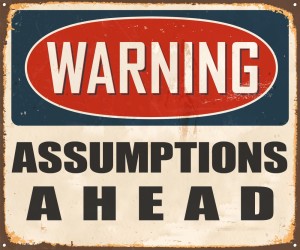That question is actually difficult to answer considering time does not exist. Got your attention? Good. Think I’m kidding? You’re wrong. If you try to explain time, it’s not as easy as you might think. It’s a system of measurement to keep track of the passing of events. The smallest common units are seconds; 60 seconds is one minute; 60 minutes are in one hour. Hours get a little more tricky…there are 24 in one day, but the devices used to measure them count only to 12. Then you have to repeat from the beginning, with a different designation: am or pm. When it’s actually 12:00, then it’s especially confusing, because 12 am is at night, but 12 pm is in the middle of the day, which is the opposite of what you’d expect it to be.
Most people don’t think about time a whole lot on a regular basis other than checking the clock to see how much longer they have to be in math class. The concept of time is a construct of human perception used to micromanage the universe. Time does not exist to other animals, and does not generally matter to the universe in general unless you’re using it as a variable in physics. There is no concreteness to time, and no standard to describe its passing other than the hands on a clock.
Clocks can stop ticking though. Would time exist without a device to measure its passing? Well that depends. Events would still occur, and would still progress in a linear fashion one after the other. There would be no meetings at 4:00, though, or schedules where every minute of the day was planned out. Can you imagine such a world? No, you probably can’t, because we would be incapable of living in such a world. Without time, our society would fall apart. Everything we do is centered around time, though everyone takes its existence and accuracy for granted. Sports, school, television, food preparation, sleep – all of these activities are a function of time in our everyday lives.
Still having trouble agreeing with me? Think of it this way. The last time a clock ran out of batteries and the hands stopped moving, or the power went out and your alarm didn’t go off, for a brief period of time in whatever setting that occurred, time ceased to exist. Life still went on, though, even if it was interrupted for awhile. If that had continued for any prolonged period, things would’ve gotten chaotic. Humans need to feel like they are in control, and so they created this system to feel like the universe was more manageable; to make sense of the fact that they couldn’t just redo something and have it be changed. Humans have double standards for their system, though; time zones undermine our own presumptions of the absolute nature of time.
There’s also the distortion of time based on mood or environment. “Time flies when you’re having fun” has some truth to it. Time speeds up as you get older. Zeno’s Paradox illustrates this concept clearly, though in a different context. Basically, to get anywhere ,you must get half-way before you can go the whole way. The first time you cut the distance in half, it’s a large portion of the distance. The second time, it’s half as large, then a fourth, etc. When you’re a year old, you’ve survived half of two years. but when you survive two years, it’s half of four, and so on. Time speeds up as you get older. Time also speeds up during good times, or slows down during intense moments. Slow-motion scenes in movies do their best to illustrate the feeling, and I’m sure everyone reading this has a moment they can look back on to understand the concept.
There is no concreteness to time. Even if it can be measured, our perception of it varies depending on our emotions and the setting we’re in and the people around us. We need time for our society to function, but often we assume its a solid thing when really it’s an abstract idea that we made up for our own benefit. The universe could function without time. It exists only as a system that is used by us for the purpose of communication and the illusion that humans can control the planet we live on.
Videos of the week:
- Dictionary of Obscure Sorrows: Zenosyne
- Time: An Entertaining Explanation



